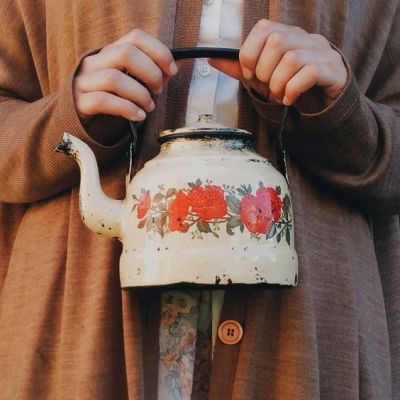
Saturn in the 8th House: Unearthing Dark Secrets
 The 8th house is the house of death, rebirth, intimacy, the deep undercurrents of life. It’s where we strip away all the performative nonsense and stand there naked — metaphorically, but occasionally literally if you’re feeling daring — facing the great abyss. And Saturn doesn’t let you phone it in. This planet demands that you sit in the discomfort, drink the bitter tea, and find out who you really are beyond the ego’s costumes. With Saturn in the 8th house, this isn’t some lightweight arrangement; it’s heavy. The emotional world for you is not a playground — it is a battleground. Relationships, for you, are never casual. They can’t be. Even when you wish they were — even when you think, “Oh, let’s just have a bit of fun, let’s just keep it light.” There is a seriousness stitched into the very fabric of your being, a gravitas that won’t allow you to stay at the surface for long. You crave bonds that reach beneath the skin, into the marrow, bonds that demand vulnerability, honesty, transformation. Anything less feels like an insult to your intelligence, your intuition, your knowing.
The 8th house is the house of death, rebirth, intimacy, the deep undercurrents of life. It’s where we strip away all the performative nonsense and stand there naked — metaphorically, but occasionally literally if you’re feeling daring — facing the great abyss. And Saturn doesn’t let you phone it in. This planet demands that you sit in the discomfort, drink the bitter tea, and find out who you really are beyond the ego’s costumes. With Saturn in the 8th house, this isn’t some lightweight arrangement; it’s heavy. The emotional world for you is not a playground — it is a battleground. Relationships, for you, are never casual. They can’t be. Even when you wish they were — even when you think, “Oh, let’s just have a bit of fun, let’s just keep it light.” There is a seriousness stitched into the very fabric of your being, a gravitas that won’t allow you to stay at the surface for long. You crave bonds that reach beneath the skin, into the marrow, bonds that demand vulnerability, honesty, transformation. Anything less feels like an insult to your intelligence, your intuition, your knowing.
You have become exquisitely attuned to the signs of falseness. You can smell a lie before it’s fully left someone’s mouth. You feel the tremor in a voice that doesn’t match the energy behind it. Hypocrisy, manipulation, superficial charm — it all crackles at the edge of your awareness, irritating, impossible to ignore. When you detect it, you retreat. It’s the fierce understanding that your soul isn’t a public park for just anyone to trample through. There’s also a strange paradox at play: this placement fills you with longing, a deep ache for union that is real and raw and magnificent — yet it simultaneously equips you with the armor to defend yourself against the very betrayals that could grant access to that longing too soon, or too easily. You are like a castle with its drawbridge always half-raised: beckoning a worthy soul inward while keeping the moat teeming with crocodiles for those who would come with false intentions.
You were taught, early and harshly, that not everything is as it seems. Promises can be broken, smiles can conceal knives, and even those who are meant to love you can be driven by motives they do not speak aloud. In this vulnerable state, you learned trust is not a default setting. You understood, perhaps before you even had the language to name it, that the world could be both beautiful and cruel, and to survive it without losing yourself, you would need to become your own most faithful protector.
In relationships, then, you demand a kind of authenticity that few are prepared to offer without considerable effort. You don’t fall easily. You don’t fling open your gates at the first sign of affection. Instead, you observe. You test. You give tiny, precious pieces of yourself and watch what the other does with them. And if they prove careless, if they betray even a small trust, you retreat, sometimes wordlessly, like a tide pulling away from a polluted shore. And underneath it all, there is a secret longing for love. For a place where you can lower your armor without fear of ambush. For someone who sees you — all of you — and does not flinch or flee or manipulate. You crave a union where the ghosts of past betrayals are finally laid to rest.
The Darkest Fear
When intimacy approaches — when another human being draws close enough that their breath mingles with yours, their spirit brushes against the wounded places within you — you stand at the precipice of terror and transcendence. Part of you, wise and wary, clutches at control like a drowning man clutches at driftwood. You think, “If I surrender, if I merge, I will lose myself. I will be destroyed.” And in a way, you are right. The part of you that is armored, rigid with old fears, must be destroyed for true union to occur.
The fear you feel is from all of the times you reached out and were met with betrayal or neglect. It is the body and the psyche remembering, with brutal reality, what it costs to be undefended. And so you tread carefully, wrapping your vulnerability in layers of watchfulness, letting others approach only so far before the alarms sound and the drawbridge lifts. But there comes a moment — and it always comes — when all the tidy, cautious walls you have built within yourself begin to buckle under the sheer pressure of your own humanity.
Beneath your composed surface simmers a volcanic sea of feelings — anger at those who hurt you, envy of those who seem to love easily, resentment toward the unjustness of it all, hatred even, directed at the betrayals both real and imagined. You have tucked these away in dark corners, convincing yourself that to acknowledge them would make you weak, ugly, unworthy of love. But repression isn’t erasure. It is simply a delay. What is buried is not dead — it grows roots. And there comes a critical moment when your body, your heart, your very soul demands to be freed from the shackles of polite suffering. It is a terrifying moment. It feels like dying. It is a kind of death — the death of the false self you constructed to survive. And in that death, there is the possibility of something greater: a liberation so profound that it shakes the very foundations of your identity.
Sexuality, intimacy, emotional merging — these become the battlegrounds upon which you wrestle your own shadow into the light. They are rites of passage, initiations into a deeper, more authentic life. They strip you bare, forcing you to confront the hidden parts of yourself with brutal honesty. If you can lean into this process — if you can find within yourself the courage to allow the storm to break — you will find on the other side a level of connection, of love, of ecstatic freedom that most people only glimpse in their most fevered dreams.
Because of all you carry — the hidden bruises, the fears folded into the creases of your spirit, you need, someone who knows how to handle these things. Someone who understands that when you flinch, when you grow wary, when you brace yourself against the intimacy you so fiercely long for, you aren’t rejecting love — you are simply negotiating the terror that love has historically brought. To build trust with you is like planting a slow-growing oak — a thing of seasons, of patience, of quiet tending. It will not sprout overnight, nor should it. You require a partner who can sit with your silences without filling them with noise, who can bear the heat of your defenses without flinching, who understands that love is not about bulldozing past your fears but about holding space for them.
Within intimacy, you will feel pushed. You will feel, at times, like a creature trapped between the desperate need to be held and the equally desperate need to protect yourself. When anxiety rises — when old shadows stir — you may retreat into silence, into suspicion, into an aching distance. You might even lash out, unconsciously testing your beloved, trying to see if they will stand firm or abandon you at the first sign of difficulty. This is because somewhere deep inside you still believe that if someone truly sees the full breadth of your pain, they will leave. And so you preempt the abandonment — better, you think, to reveal the worst parts first, to scare them away before you risk being devastated by their inevitable departure. But the right partner will not leave. They will see you — raw, complicated, fierce, and frightened — and instead of turning away, they will draw closer. They will not demand that you tear down your walls overnight. They will help you dismantle them, brick by heavy brick, with patience, kindness, and love that does not flinch.
Sexual Fears
Sex, for someone with this arrangement is exposure. It is risk. It is the terrifying possibility of being known. To undress for another is, for you, no casual act — it is akin to removing your armor and standing naked on a battlefield, trusting that the other will not strike. And because of this, the very idea of sex can provoke a profound fear. A visceral recoil. Deep down you understand that in the act of physical intimacy, you cannot fully control how you are perceived, how you will be affected, how deep the other’s access to you might run. Sex isn’t a transaction for you; it is a potential invasion, a crumbling of the walls you’ve so carefully built to protect yourself.
For some, this fear leads to avoidance: a kind of emotional chastity, a suspicion of their own needs. They may shroud their longing in intellectualism, spiritualize it away, or convince themselves that they are simply “above” such base instincts. But underneath, there is a desire to surrender battling a terror of being overwhelmed, consumed, betrayed once more. For others, paradoxically, the fear produces the opposite response: overcompensation. A defensive posture of sexual bravado. A fierce control over when, how, and with whom intimacy occurs. They may perform confidence, flirt wildly, initiate encounters, all in an effort to maintain the upper hand, to stay on the offensive, lest they be caught vulnerable. But even in the midst of these encounters, there is a subtle withholding. A refusal to truly let go. The body may be engaged, but the soul remains perched behind a wall of invisible defenses.
Both responses — withdrawal or overcompensation — are, at their core, expressions of the same wound. A wound that says, “If I let you in, you might destroy me. Better to hide, or better to dominate, than to risk being undone.” Yet, your sexuality, your capacity for intimate union is simply waiting, longing for a level of safety and trust profound enough to melt the armor you have worn for so long. When you meet a partner who earns your trust, who does not rush or coerce or exploit, but waits — patiently, tenderly, consistently — something remarkable happens. The fear, rather than disappearing overnight, begins to transform. It becomes a doorway, a rite of passage. And the love that emerges from such a union — the sexual, emotional, spiritual fusion — is deeper, richer, and more profoundly transformative than anything casual could ever offer.
The Wounds
Early in life, an authority figure — a parent, teacher, mentor, or someone you trusted innocently — may have violated you. It shook the very foundations upon which a sense of safety in the world is built. This kind of betrayal cuts deeper than ordinary disappointment. It’s as if the very scaffolding of your soul has been cracked. The figures who were supposed to be the guardians at the gate of your young life, turned out to be something else — fallible, cruel, even violent. And the pain from such a betrayal isn’t just the pain of what was done — it is the pain of what was stolen: your innocence, your basic trust, your ability to move freely through the world without that ever-present edge of vigilance. For someone with Saturn in the 8th, this wound becomes embedded into the fabric of intimacy and vulnerability. You expect romantic betrayal, somewhere deep inside. You carry the imprint of the old authority figure who hurt you, and every potential partner is, on some level, a potential stand-in. “Will you too abandon me? Will you too betray my trust, my body, my soul?” you wonder silently, sometimes without even realizing you’re asking. If violence was involved — whether physical, emotional, or spiritual — the body itself holds the memory. It stiffens, it guards, it anticipates harm even in moments that should be safe. Intimacy, love, surrender — these are treacherous terrain. Every kiss could be a knife. Every promise could be a trap. The betrayal you suffered did not end you, though it could have.
According to The Contemporary Astrologer’s Handbook:
“There can be a fear of intimacy and crises with this placement, you will do anything to avoid the pain of various types of trauma, and even the daily hurly-burly of being with someone can create anxiety. The fear may be of being controlled either in, or through, the sexual act. You will probably have inherited residual baggage from your parents in this respect. But through time, you may become an authority on intimate relationship and at home with crisis of all kinds. In the bedroom, you will often feel much better if you can be in control. There is a need for you to define your deepest feelings with Saturn here. Fear of death may go with the territory too, with you potentially, through time and experience, becoming expert on that also…On the financial front, there will often be responsibilities for joint resources, although you may will feel trapped and imprisoned by your responsibility for another’s money. A feeling of obligation and vague guilt will have prompted you to take on this burden in the first place.”
Liz Greene says that Saturn in the 8th house marks a journey that often begins with profound loss or absence — and you, with your sensitivity and depth, know this territory through lived experience. Saturn can represent the father, becoming a symbol of safety, structure, and the promise that someone strong enough exists to stand between you and the chaos of the world. When this figure is absent — through death, detachment, emotional coldness, or simply an inability to show up in the way you needed — the world becomes a colder, more dangerous place.
It is not just the man who is lost — it is the idea that someone would come if you called out in the night. It is the belief that you could lean, could trust, could be carried when you were too small to walk alone. And when this belief is shattered, even before you have words to name it, the wound sets deep into the bones. It becomes part of the emotional realm, invisible yet heavy. The absence — whether through death or emotional abandonment — teaches a child a bitter lesson: love may not be reliable, and those who should protect may vanish, or intimacy may come laced with loss. And this lesson seeps outward, coloring every bond formed thereafter with a subtle conflict, a watchful anxiety. Will you leave me too? Can I trust what I feel? Is safety ever truly real? And if, on top of this paternal void, there was a simmering sexual tension or conflict within the parental relationship — the mother and father locked in their own complicated dance of resentment, desire, betrayal — then the child grows up mistrustful of love. Love feels like a battlefield riddled with hidden traps. Intimacy becomes synonymous with conflict, with manipulation, with a kind of heat that burns rather than warms.
This is a painful inheritance, one not asked for yet carried nonetheless. And so, as an adult, you may find yourself caught in a torturous double-bind: craving connection but fearing its inevitable corruption, longing for closeness but bracing against the violence you suspect lies hidden beneath its surface. Healing from this kind of early wounding is never quick. It involves forgiving yourself for the ways you learned to survive — the defenses, the mistrust, the hesitations — and slowly, patiently, learning to lay them down when you find someone who shows up with steadiness.
When Saturn is in the 8th house, and the environment is particularly harsh, the results can indeed be severe: real violence — the kind that leaves fractures in the soul. Physical abuse, emotional terror, environments saturated with fear and unpredictability — these things do not merely “make you stronger,” as some glib sayings might suggest. No. They burn their patterns deep into the body and the psyche. They carve out a reality where trust is a risk; where love must be approached as one might approach a sleeping dragon — carefully, cautiously, always prepared to run. For those who have lived through such early violence, the damage goes deeper than simple memory. It alters the nervous system. It teaches the body to remain in a state of alertness, forever scanning for danger. It creates a deep, gnawing belief that the very act of being vulnerable is a fatal flaw. Healing from such experiences isn’t simple as “letting go” or “moving on,” as those unfamiliar with deep trauma might casually suggest. It is a journey back into the body, back into the heart, back into the trust that was stolen before it could even properly form.
Power Struggles in a Partnership
Financial strain is a common manifestation of this placement. In fact, quite often it is the relationships themselves — the binds of loyalty, the contracts both spoken and unspoken — that become the snags where the soul is caught. Divorce, with all its bitter negotiations over who gets what. Partnerships where money is used as a weapon, a means of control. Lovers or spouses who withhold, manipulate, dominate under the guise of “providing” or “protecting.” The pain of these experiences is existential. Money becomes a proxy for trust, for freedom, for the terrifying question: Can I really rely on anyone but myself? And if not — what does that mean for how I must live, how I must love?
Who pays the bills. Who carries the debts. Who holds the reins when the storms come. All of it matters. All of it reflects your deeper fears about abandonment, betrayal, and survival. You may find, over time, that you develop a certain wariness about combining your resources with others. A fierce independence blooms. You want partnerships of equals, where power is balanced, where giving and receiving are acts of mutual respect rather than dominance or submission. And yet, the paradox persists: healing for you doesn’t lie in absolute autonomy, nor in blind trust. It lies in the slow, careful, Saturnian work of discerning the right people to build with.
Stephen Arroyo speaks to what this placement demands: you are managing energy, karma, and power cloaked in financial and emotional form. Every mortgage signed, every tax bill faced, every inheritance fought over or refused — these are spiritual rites, heavy with symbolic meaning. When Saturn sits brooding in the 8th, you are compelled again and again to confront the realities that others might happily ignore. Insurance, taxes, debts — they are reminders that life is finite, and ties between people are tangled up with trust, mortality, and legacy. You are asked, repeatedly, to wrestle with what you owe, what you inherit, what you are burdened by, and what you are entitled to claim as your own.
These financial matters are never truly separate from your emotional life. In fact, they are the mirror in which your deepest relational patterns are reflected. A struggle over an inheritance might reveal old family betrayals that were never spoken aloud. A tangled mortgage might expose the subtle power plays between lovers. A tax issue might surface your hidden fears about being seen, being judged, being punished. Your relationships, particularly your most intimate ones, are therefore never simple. They come with invisible contracts as well as visible ones. Who holds the power? Who owes what to whom? Who sacrifices and who benefits?
And yet, Saturn never sends you into these tests empty-handed. He grants you — if you are willing to do the work — a growing mastery over these domains. You become someone who can sit in the discomfort of negotiation. Someone who can bear the weight of financial responsibility without flinching. Someone who can handle power — real, adult, unglamorous power — with dignity and fairness. In your career, too, this influence might call you into roles where you are trusted with the affairs of others — managing resources, overseeing contracts, handling inheritances or legal battles.
In this house, Saturn calls your attention to where you have been wounded — and more importantly, where you are ready to be healed. Fear around your own sexuality, unease with emotional nakedness, the instinct to guard yourself fiercely around shared finances or intimacy — these are are markers of the deeper soul-work that was planted in your life long before you had a name for it. Your past — the relationships that burned instead of warmed, the sexual experiences that confused or frightened you, the moments when intimacy felt more like exposure than communion — all of these left fingerprints on your spirit. They taught you, wrongly but convincingly, that your vulnerability was a liability. Your longing for closeness was dangerous, and to let another person all the way in would be to court annihilation. And so, naturally, you built walls. You learned to manage your own needs, to keep your own counsel, to avoid the full plunge into emotional fusion unless you were absolutely certain it would not destroy you. But these walls won’t stand unchallenged forever. You will have opportunities to love, to trust, to open — and with them, the exquisite terror of facing your own unfinished business. To confront these shadows is to become whole. It means standing naked in front of your own fears, seeing them not as monsters to be slain but as abandoned children to be reintegrated into your being. You may fear that if you acknowledge the full weight of your insecurities and buried pains, you will drown in them. But the truth is the opposite: it is by facing them, naming them, honoring them, that you are freed. The shadows lose their power when they are brought into the light, when they are held with compassion instead of shame. The road is long. It demands patience, humility, and more kindness toward yourself than perhaps you are used to giving. But you are capable. You are already walking it. Every time you dare to feel instead of numb, to reveal instead of hide, to stay instead of flee — you are healing. You are becoming.



















 Sun Square Pluto Synastry: You’ve Got That Power Over Me
Sun Square Pluto Synastry: You’ve Got That Power Over Me
 Scorpio’s Cold Withdrawal
Scorpio’s Cold Withdrawal
 Moon Conjunct Pluto Synastry
Moon Conjunct Pluto Synastry
 Venus-Pluto Synastry: A Love So Powerful That It Might Just Kill Them
Venus-Pluto Synastry: A Love So Powerful That It Might Just Kill Them
 Mars Square Pluto Natal Aspect: The Unbreakable Spirit
Mars Square Pluto Natal Aspect: The Unbreakable Spirit
 Reflections on a Past Venus-Pluto Synastry Aspect
Reflections on a Past Venus-Pluto Synastry Aspect
 Mercury Conjunct Venus Synastry
Mercury Conjunct Venus Synastry
 Mars-Pluto Synastry: Something Quite Dark and Dangerous
Mars-Pluto Synastry: Something Quite Dark and Dangerous
 Uranus Transits 8th the House: Rebirth from Chaos
Uranus Transits 8th the House: Rebirth from Chaos
 Venus Trine Mars Synastry
Venus Trine Mars Synastry
 Mars-Saturn Synastry: The Eternal Loop
Mars-Saturn Synastry: The Eternal Loop
 Composite Sun in the 8th House: Weather the Storm
Composite Sun in the 8th House: Weather the Storm
 Mars in Aquarius: Sex drive
Mars in Aquarius: Sex drive
 Sun Conjunct Pluto Synastry: Enlightening or Annihilating
Sun Conjunct Pluto Synastry: Enlightening or Annihilating
 Venus Trine Pluto: Dark Desires
Venus Trine Pluto: Dark Desires
 Mars Conjunct Pluto Synastry
Mars Conjunct Pluto Synastry
 Moon Opposite Uranus Natal Aspect
Moon Opposite Uranus Natal Aspect
 The Watery Gardeners: Cancer, Scorpio, and Pisces
The Watery Gardeners: Cancer, Scorpio, and Pisces
 Transiting Pluto Aspect Natal Mars: Are You Mad as Hell
Transiting Pluto Aspect Natal Mars: Are You Mad as Hell
 Moon Conjunct Pluto Natal Aspect: Emotional X-Ray Vision – Seeing Through Souls Since Birth
Moon Conjunct Pluto Natal Aspect: Emotional X-Ray Vision – Seeing Through Souls Since Birth